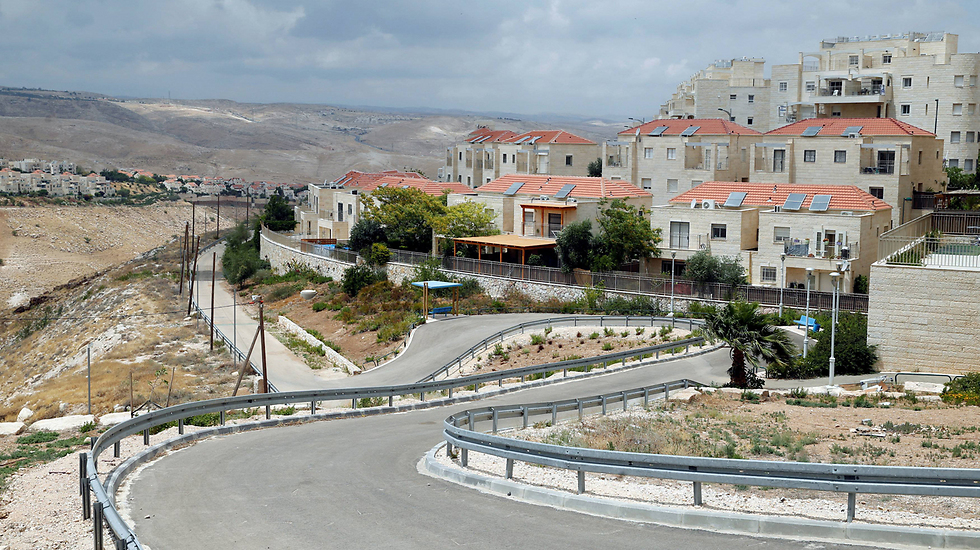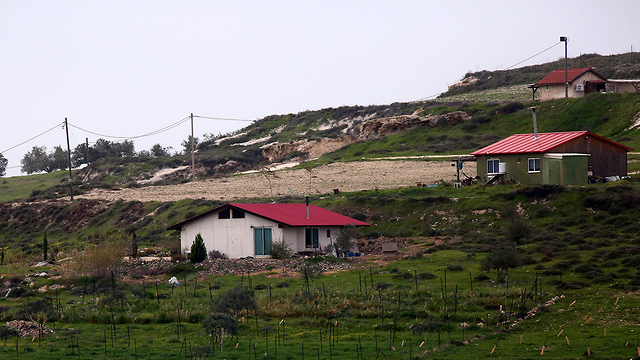
Time for Oslo to exit the stage
Op-ed: What is currently being offered to the Palestinians falls far short of a state and will not diminish claims that they continue to live under occupation, but Israel cannot relinquish security control over Judea and Samaria. New solutions are needed.
The first of these is the fact that Israel does not deal with a single, unified Palestinian system which takes centralized decisions vis-à-vis Israel. Rather, a Hamas state has risen in Gaza, which has its own policies and decision-making, and which is not subordinate in any way to the Palestinian Authority (PA) in Judea and Samaria.
The PA, for its part, runs an autonomy and has separate decision-making policies. It does not represent roughly the half of the Palestinian nation that is located in the Gaza Strip. Even in Judea and Samaria itself, there are many Palestinian elements who do not view themselves as subordinate to the PA, but rather, they are affiliated with groups such as Hamas, Palestinian Islamic Jihad, or with other hardline Islamist entities.
Unfortunately, there is a tendency to utterly ignore this reality, and to try and negotiate with the PA in a way that fails to take into account the fact that it does not represent all of the Palestinians.
All of this means that the Israeli desire to receive guarantees of security and peace in exchange for concessions cannot be met. There is no one on the Palestinian side who can supply the goods.
Throughout the last ten years, and particularly now, following the election of US President Donald Trump, what is being offered to the Palestinians is substantially less than anything resembling a state. And the offers keep shrinking.
An in-depth look at the platforms of all of the major Israeli political parties finds that they hold much in common when it comes to what they believe Israel should offer the Palestinians. These platforms undermine the concept of a Palestinian state. All of the major parties agree that Israel should continue its control of the Jordan Valley, which means that any Palestinian entity will be fully contained by Israel’s security forces, and that Israel would control all entry and exit points. Such an entity does not meet any reasonable criteria of statehood. Control of the Jordan Valley is an existential security need for the State of Israel, but it means that any Palestinian state in Judea and Samaria would have no unimpeded outlet to the rest of the world.
There is also an across-the-board understanding within the Israeli political system that in light of the severity of the terrorism threat in Judea and Samaria, the Israel Defense Forces will need near full freedom of operation in any future scenario. This means that the Palestinians will be able to continue to claim that they are under Israeli occupation, since such military activity is a basic need for the State of Israel.
The PA, for its part, is quietly in favor of the IDF's many actions against Hamas in Judea and Samaria, as this helps it survive and prevent a Hamas revolution. The PA has a basic interest for the IDF to continue its activities.
SETTLEMENTS DISRUPT PALESTINIAN CONTIGUITY
The issue of Israeli settlements in Judea and Samaria casts a major shadow on the idea of a Palestinian state. All mainstream Israeli parties agree that the main settlement blocs must remain in any future arrangement. Yet the Israeli public is less aware of the fact that the blocs sit in the heart of the hills of Judea and Samaria, rather than being limited to areas near the Green Line. This makes Palestinian territorial contiguity a technical impossibility.
It also makes the idea of an Israeli separation from the Palestinians impossible. Israeli and Palestinian communities are intertwined, often existing on the same roads, particularly on Route 60, which is a central artery running through Judea and Samaria. The current situation, in which the PA controls Palestinian population areas and Israel controls its communities is the most logical, but this certainly cannot lead to anything resembling a state.
The heavily used term 'isolated settlements' is somewhat misleading, as it refers to 125,000 Israelis who cannot be forcefully removed, nor can they be left to live under Palestinian sovereignty.
All of these factors mean that discussion of a sustainable Palestinian state in Judea and Samaria has become irrelevant. Justifiable Israeli demands that such a state would be demilitarized, with no ability to build up its military force, also undermine the idea of a sovereign state.
For a century, two peoples have been fighting for control of a small area that is no more than 70 kilometers wide. Each side has attempted to control most of the territory, leading to many conflicts. The bottom line is that Israel has won, and controls most of the territory. The most generous proposal that Israel can currently offer divides the land 70-30 in Israel’s favor. Anything more generous than that would make Israel unsustainable in the long term. From a Palestinian perspective, this is not a tolerable offer. The result is a stalemate.
Only out-of-the-box thinking which adds more territory, can lead to a break from the deadlock.
Otherwise, two million Palestinians living in Gaza, a strip of land that is only 5 kilometers wide, will be condemned to a reality that is devoid of a future. Palestinians in Judea and Samaria will also be reduced to a narrow area, surrounded by Israelis.
A completely new approach is needed for serious solutions.
Brigadier-General Amir Avivi (Res.), concluded his service as the Head of the Auditing and Consulting Department of the Israeli Defense Establishment. Prior to that, Avivi fulfilled various command positions in the Corps of Engineers leading thousands of soldiers in a dynamic, combat environment. Avivi served as Brigade commander, Deputy Division commander and head of the Military School of Engineers. He also served as the aid-de-camp for the Chief of the General Staff of the IDF. Avivi was at the heart of the policy making process in the Israeli Government and Defense establishment during that term.












